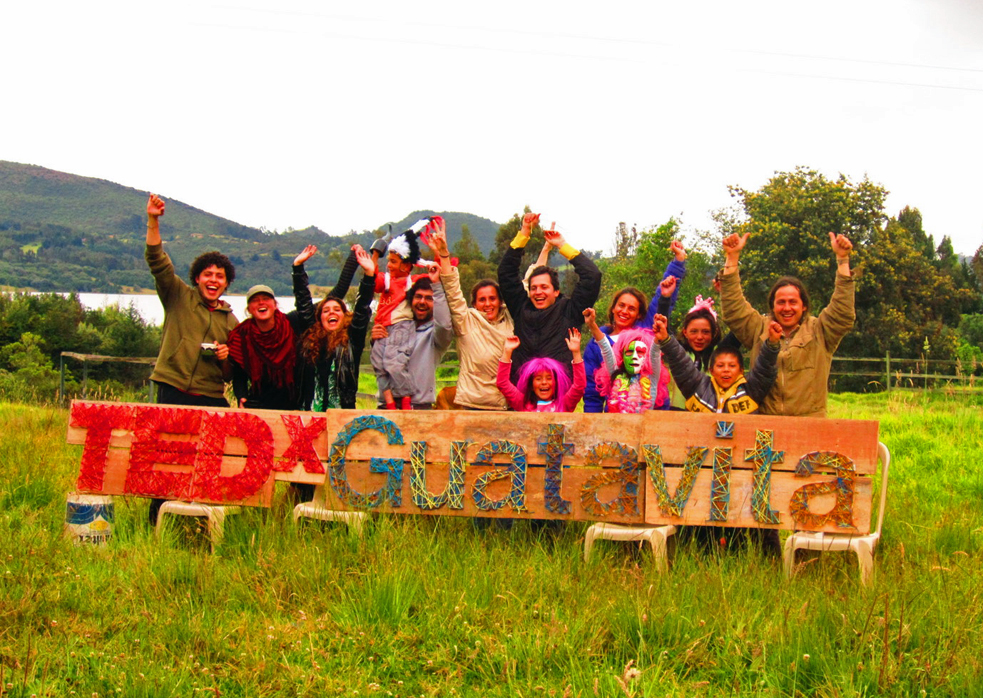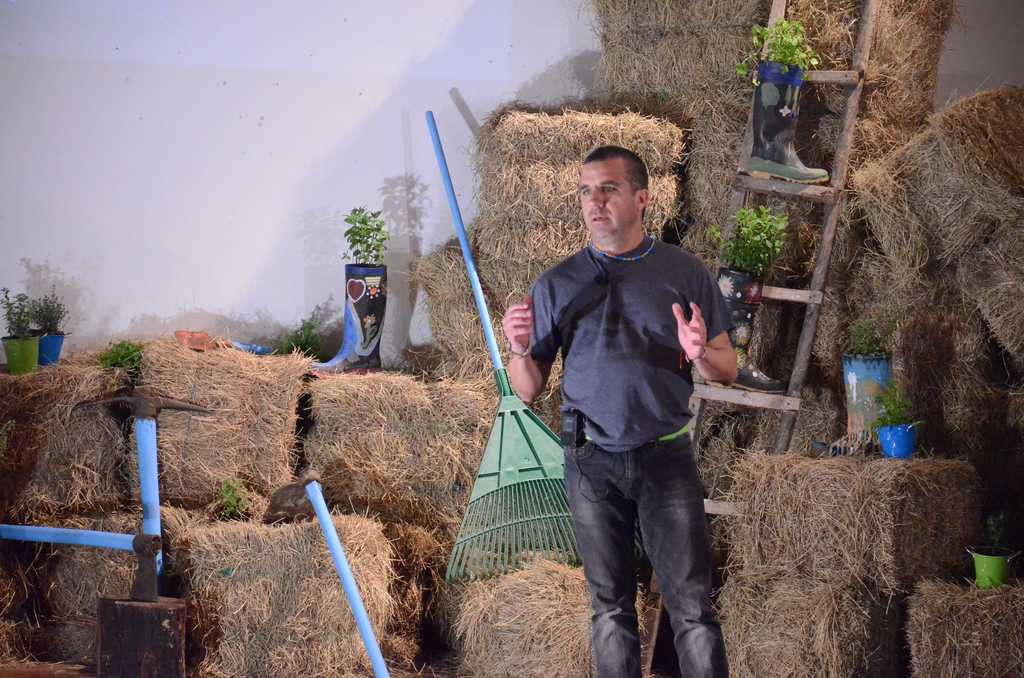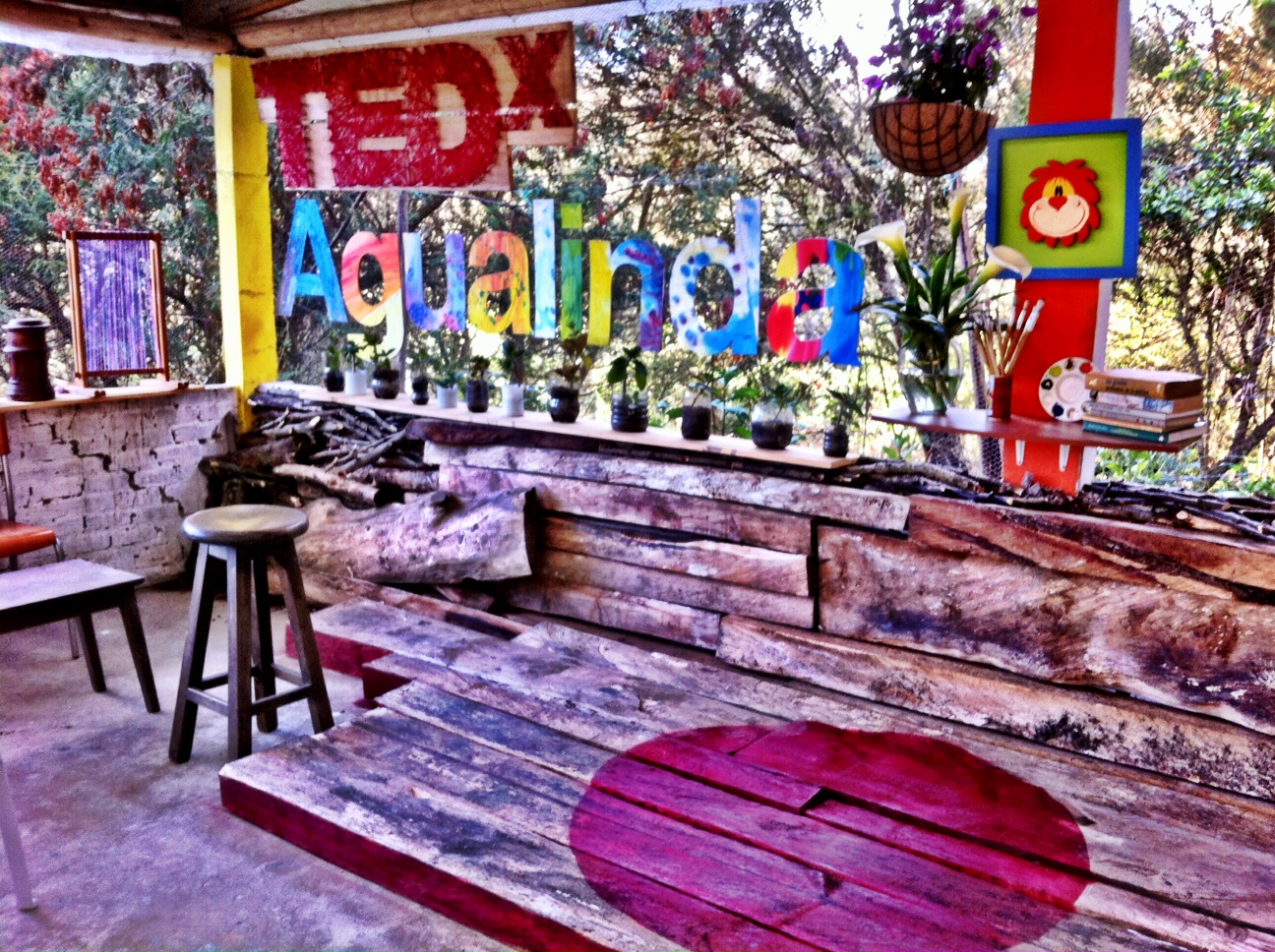
TEDxGuatavita took place in rural Colombia and focused on the “enormous hidden potential of projects germinating in the countryside.” Photo: Courtesy of Felipe Spath
If you were to map out all 10 TEDx events that Felipe Spath has organized, you’d have a constellation of waypoints zigzagging through Colombia’s countryside—passing farms, mountains, lakes, coffee fields and mines. The tireless Colombian native organized his first TEDx event in 2012 and has been going nonstop ever since, working to bring ideas from TEDx to small rural communities that, without him, may not have heard of TED.
Spath, an anthropologist, grew up in the country’s capital, Bogotá, and studied at the local university, Universidad de los Andes. After working in the restaurant business for several years, he decided to quit his job, leave the city and spend three years visiting rural areas in Asia. When he returned to Colombia, it was with a different mindset—he wanted to see his own country and spend time in some of its less-appreciated areas. He moved to a small village, Guatavita, and started a farm with his brother, a photographer who documents the lives and traditions of rural Colombia.
Spath first heard about TEDx from a friend, Juan Pablo Calderón, the organizer of the first TEDx event in Colombia, TEDxCeiba, held in Bogotá. “I attended TEDxCeiba and was deeply inspired and overwhelmed by the quantity and quality of the networks that were created that day,” says Spath. “This was several years ago, and to this day that first contact with TEDx shines through all we do at events now.”
But Spath didn’t think to hold his own TEDx event until a year later, when at a dinner with Calderón, the veteran organizer encouraged the newbie to take on a different kind of TEDx event, one that would focus on the “enormous hidden potential of projects germinating in the countryside.” Spath was loving life in Guatavita, and decided to take on the challenge.
“TEDxGuatavita was born that day,” Spath says. For it, he dreamed up the theme “Hay Campo en el Campo,” which translates to, “There is space and opportunity in the countryside.” The stage was decorated with hay bales, farming tools and boots filled with plants, a perfect setting for talks about the innovative projects sprouting in Colombia’s rural areas. Spath’s team even created a “rural billboard” to promote the event with the help of his brother’s travelling cinema project. Using a sheet, rope and logs, they created a pop-up billboard onto which a giant invitation to the event was projected, even at night, asking local farmers to attend.

The TEDxGuatavita stage was especially notable for its design—bales of hay, farm equipment, and plants in boots. Photo: Courtesy of Felipe Spath
TEDxGuatavita was a success because people made it their own, says Spath. A cattle farmer discussed his sustainable cattle breeding model; a member of the National Federation of Coffee Growers of Colombia discussed the intricate fabric of the coffee industry; the head of the oldest cooperative for female artisans in rural Colombia explained how the group was born and how it affects the lives of women now.
After TEDxGuatavita, Spath caught the TEDx bug. He went on to organize a TEDxYouth event in Guatavita (TEDxYouth@Guatavita), a TEDxLive event (TEDxGuatavitaLive), and six more TEDx events in rural communities nearby. “My inspiration to keep holding events comes from the deep belief of how effective TEDx events are for positively affecting our world,” he says. “As an organizer, you regularly meet people who tell you about a project started at a TEDx event, or how their lives, their families, the world was made a better place after those ideas or connections entered their lives.”
Though he organizes events in towns outside his own, Spath sees himself more as a mentor to local people — a cheerleader to help people get through the difficult but rewarding work of hosting a TEDx event. Many of the events Spath works on—like TEDxAguaLinda in Sesquile, Colombia; TEDxZapatero in Cartagena de Indias; TEDxCazuca in Soacha; and TEDxLaCalera in La Calera—are TEDx in a Box events. The TEDx program created these ready-made boxes that contain everything needed to host an event—a projector, a collection of subtitled TED Talks, a sound system, microphones, a how-to guide—to support events in underserved communities. These boxes make it much easier to host an event in areas where technology and sponsorship are hard to come by.
“[My team and I] work with different communities, but they organize the events. The event itself happens because of the work and creativity of local folks; we are there for resources and guidance,” Spath says. “Often in rural or peripheral communities, outsiders arrive to inspire, or teach or talk about ideas which will ‘change their lives’ — but rarely do. It is an amazingly powerful moment when the person up onstage is not an outsider, but your grandmother, or your neighbor. This greatly empowers communities, and has the potential for so much more.”
Speakers at these TEDx events have included a documentary filmmaker who is filming the lives of Colombian homeschooling families; a journalist working to develop community centers with accessible technology for people with disabilities; and the founder of a rural, open seed library, which allows anyone in the area to borrow or contribute seeds to diversify their crop production.
“Each time we are so surprised by the stories told, and by the diverse approaches for solving problems and turning them into opportunities,” Spath says. “TEDx is an amazing channel for generating social transformation. That second when the host starts talking and the show is on, you understand how all of what you have worked for is the beginning of great things to happen.”

The very colorful stage of TEDxAguaLinda, one of the 10 events that Felipe Spath has helped organize in Colombia. Photo: Courtesy of Felipe Spath
Comments (4)